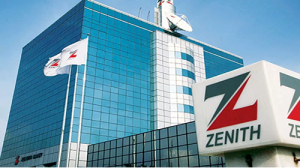Moody’s Investors Service (Moody’s) has downgraded to B2 from B1 the long-term local currency deposit and issuer ratings of four Nigerian banks. It also downgraded the long-term local and foreign currency issuer ratings of another development bank.
The agency, in its new rating released recently, listed the banks to include Access Bank Plc (Access), Zenith Bank Plc (Zenith), First Bank of Nigeria Limited (FBN) among others, while the Bank of Industry, BOI, was listed as the development bank.
Moody’s also downgraded to B3 from B2, the long-term foreign currency deposit ratings of Access, Zenith, Union Bank of Nigeria plc (Union), First Bank of Nigeria Limited (FBN) and Sterling Bank Plc (Sterling) and others.
Moody’s Corporation is the holding company that owns both Moody’s Investor Services, which rates fixed income debt securities, and Moody’s Analytics, which provides software and research for economic analysis and risk management. Moody’s assigns ratings on the basis of assessed risk and the borrower’s ability to make interest payments. Its ratings are closely watched by many investors.
Ratings range from AAA or Aaa (the highest) to C or D, which represents a company that has already defaulted.
Analysis of the report seen by us shows that concurrently, the agency downgraded the baseline credit assessments (BCAs) of Zenith to b2 from b1.
Earlier, Moody’s released a report in which it downgraded the Nigerian government bond ratings to B2, with a stable outlook, from B1. But the Debt Management Office, in its reaction, had rejected the rating.

In its latest rating of banks, the agency noted that the rating reflects the government’s reduced capacity to provide support to Nigerian banks in times of stress and the banks’ significant holdings of government securities linking their credit profiles to that of the government.
“The decision to downgrade banks’ long-term foreign currency deposit ratings follows the downgrade of the relevant country ceiling for foreign currency deposits to B3 from B2,” the agency said.
Commenting on the rationale behind the rating, Moody’s said the primary driver of the rating action is the weaker capacity of the government to provide support to banks, in case of stress, as reflected in the downgrade of the sovereign issuer rating to B2 from B1.
Subsequently, it said in its report, Access long-term local currency deposit ratings and Bank of Industry’s long-term issuer ratings no longer benefit from a one-notch uplift from their b2 BCAs (or standalone credit profile, as is the case for Bank of Industry) as these are now at the same level as the government bond rating.
The long-term local currency deposit ratings of Sterling, Union and FBN have been affirmed at B2, as their b3 BCAs continue benefiting from one notch of government support uplift, it explained.
The report explained further that the secondary driver of the rating action is the Nigerian banks’ significant holdings of government securities, which generally exceed 100 per cent of their core capital, linking their credit profile to that of the government.
“In view of the correlation between sovereign and bank credit risk, the banks’ standalone credit profiles and ratings are constrained by the rating of the government.
“As a result, the BCAs for Zenith have been downgraded to b2 from b1, in line with the downgrade of the government issuer rating, despite the resilient financial performance witnessed by both banks over the last 24 months.
“The BCAs of the other rated Nigerian banks have been affirmed as they already capture risks emanating from their sovereign exposures.”


























